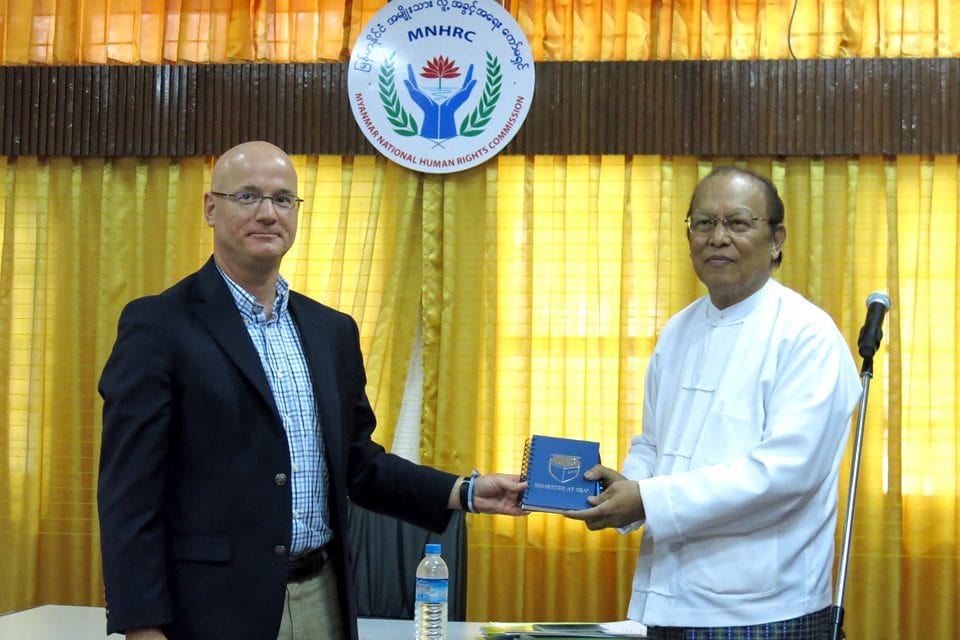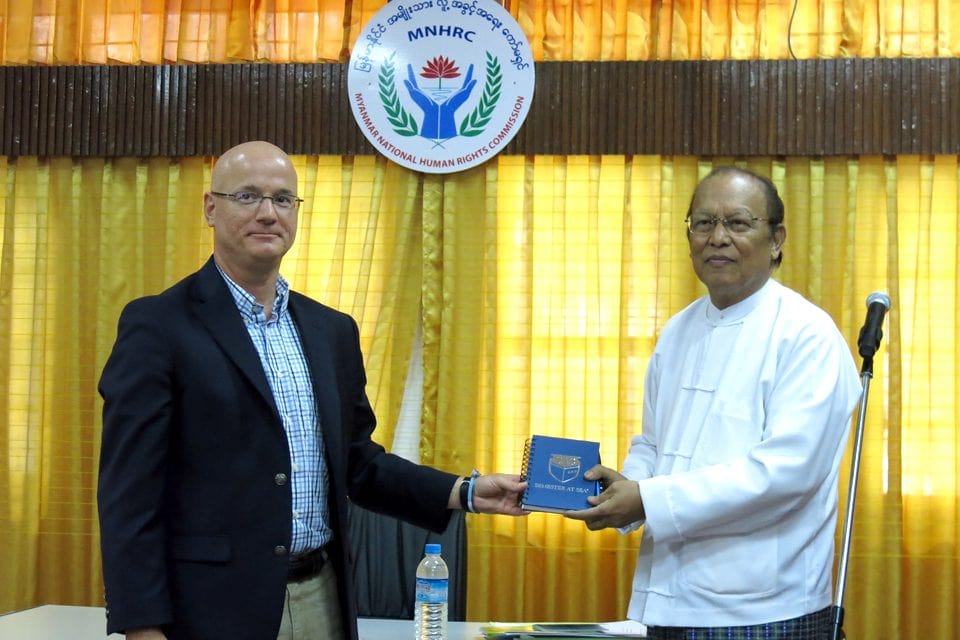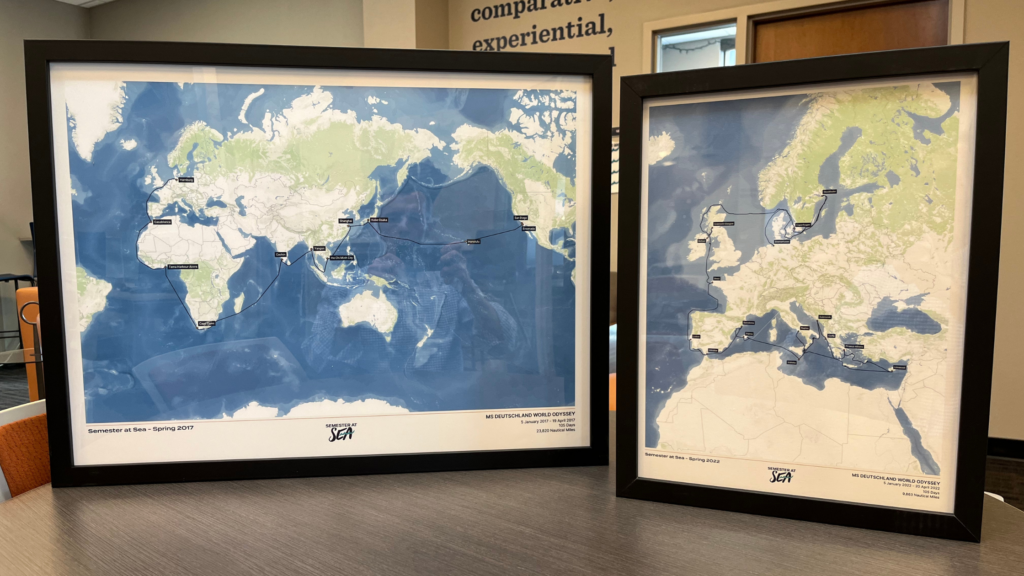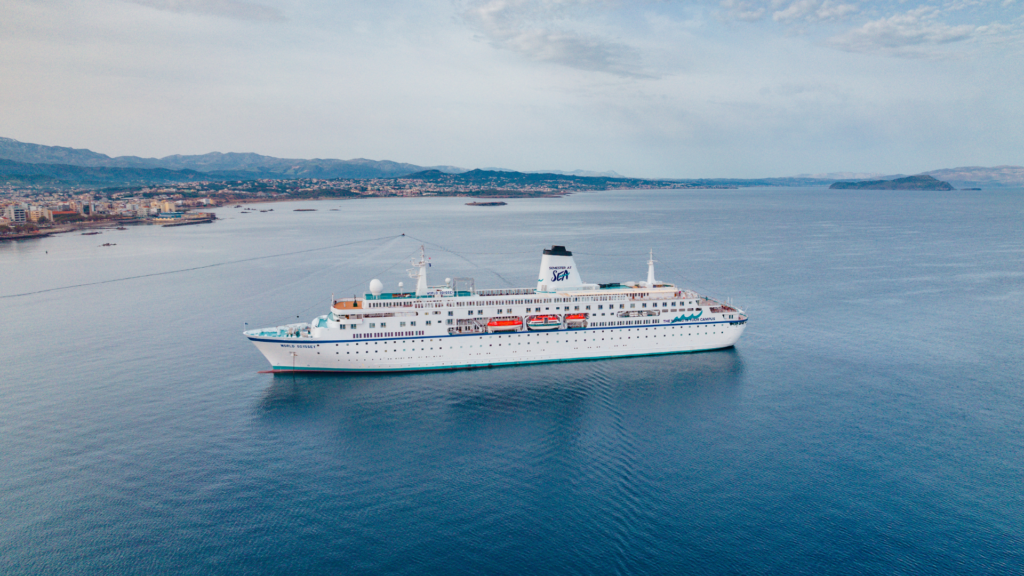For each academic course on a Semester at Sea voyage there is a corresponding field lab that is designed to complement, reinforce and enrich classroom work. Professor Bob Brigham, who was named by the United Nations as one of their “Global Experts on International Relations,” arranged for his International Human Rights class to visit two different organizations in Yangon, Myanmar for their field lab. To hear contrasting descriptions of what is happening in Myanmar was a teachable moment for Brigham’s class and a way to illustrate how difficult it can be to move the ideals of human rights from theory to practice.
Brigham’s class has spent the whole semester asking a lot of questions. First, what is an official and historically accurate definition of “human rights”? Once that has been established, what are “global human rights”? Then, what sorts of human rights violations have been committed in the countries that the Spring 2014, 50th Anniversary voyage has visited? Through readings, discussions, and assigned papers, students are constantly challenged to internalize this concept and decide whether human rights are being respected or ignored in our many ports of call.
For the first presentation, students had an exclusive, off-the-record discussion with two British embassy officials at a private room in the Padnomar restaurant. With years of expertise and insider knowledge of the country, Nicola Righini shared a little about her work at the embassy and her perspective on what she called the “evolving process of human rights in Myanmar.”
During her talk, the topics ranged from the progress made to eradicate child soldiers and sexual violence; the changed definition of “political prisoner” and how it has helped free many activists from their cells; and a proposed ‚Äì yet controversial ‚Äì census that, according to student Alexandria Shahade of Elon University, “will bring crucial information to aid organizations desperately needing accurate data.”
On the other side of town, the Myanmar National Human Rights Commission welcomed the group of students. The chairmen U’ Win Mra described the goals of the Commission and gave his own take on the current state of Myanmar. Although the topics and events discussed were similar to what the embassy officials had outlined only an hour earlier, there were some slight, yet problematic, discrepancies that raised a few eyebrows and red flags for both Brigham and his students.
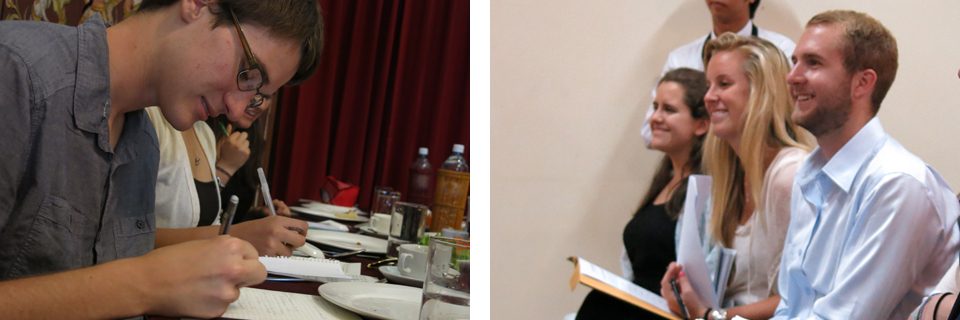
Similar to many students in Brigham’s class, Aaron Richardson of Concordia University has an interest in pursuing democracy building, international law and/or foreign service after graduation. By getting just a small glimpse of how complicated diplomacy, governance, and advocacy can be, Richardson believes it was a valuable lesson in what his future may look like if he pursues this path.
As Myanmar continues to find its voice and define its moral character to itself and the rest of the world, Brigham and his students are now well-equipped to follow along and decide for themselves if the country is on the path most likely to defend the human rights of its citizens. This field lab, an essential component of any SAS voyage, undoubtedly aided in developing this new global perspective. For the country itself, according to Brigham, these differing truths and opinions are troubling, but as a teacher trying to outline the challenges of international human rights, it was a great opportunity to bring his coursework to life. In his role as professor, Brigham is responsible for presenting many different sides of a story to his class and giving them the tools to “deduce their own opinion.” The field lab was a success as it clearly exemplified the difficulties of protecting international human rights while simultaneously supported Brigham’s classwork.
